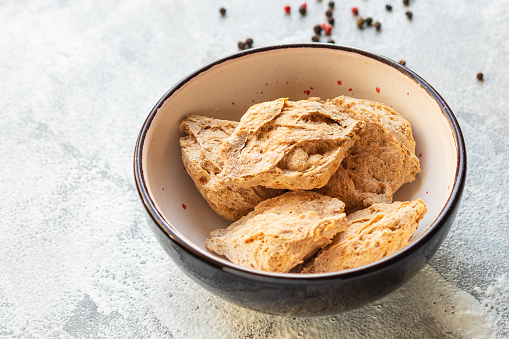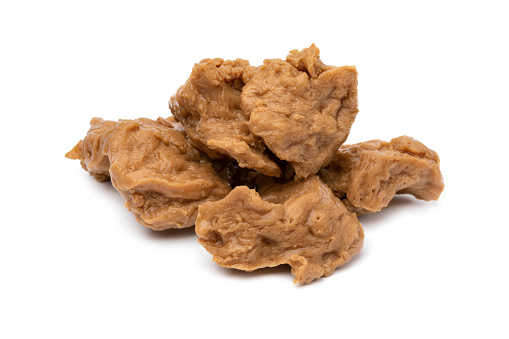Seitan, also known as wheat gluten or wheat protein, is a popular protein source for vegetarians and vegans. It is made from wheat protein and has a chewy, meat-like texture. While seitan has a high protein content, it is important to consider its other nutritional properties and potential health effects.
One serving of seitan (3 ounces) contains approximately 75-80 calories, 15-20 grams of protein, and 1-2 grams of fat. It is a good source of protein, with a protein-to-calorie ratio similar to that of animal protein sources. However, seitan is not a complete protein, as it lacks some of the essential amino acids that are found in animal-derived proteins. To ensure that you are getting all of the essential amino acids, it is important to pair seitan with other plant-based protein sources, such as beans and legumes.
Seitan is low in most other nutrients, as it is made almost entirely of protein. It does not contain any fiber, carbohydrates, or significant amounts of vitamins and minerals. For this reason, it is important to consume a variety of other plant-based foods to ensure that you are getting all of the nutrients that your body needs.
Some people may be allergic to wheat gluten, which can cause symptoms such as stomach pain, bloating, and diarrhea. If you have celiac disease or a wheat allergy, it is important to avoid seitan and other wheat-based products.
Seitan is often used as a meat alternative in dishes such as stir-fries, sandwiches, and mock meat products. While it can be a convenient source of protein for vegetarians and vegans, it is important to remember that it is not a nutritionally complete food and should be consumed in moderation as part of a balanced diet.
In conclusion, seitan is a good source of protein but is low in other nutrients. It is important to pair it with other plant-based protein sources to ensure that you are getting all of the essential amino acids and to consume a variety of other plant-based foods to meet your nutritional needs. If you have celiac disease or a wheat allergy, you should avoid seitan and other wheat-based products. Seitan can be a convenient protein source for vegetarians and vegans, but it should be consumed as part of a balanced diet.

 Home
Home Health
Health Diet & Nutrition
Diet & Nutrition Living Well
Living Well More
More












